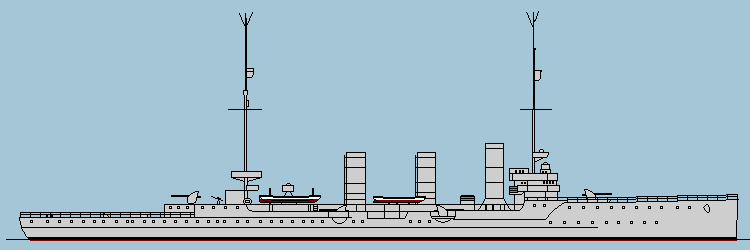The small cruiser Pillau
and its sister ship Elbing
were quite unique in the the German Hochseeflotte. Although being very similar to the ships of the Königsberg II class these cruisers were different - they were originally ordered by Russia as Muavjev Amurskij
and Admiral Nevelovsk
in 1913. At the outbreak of the war, both ships were almost completed and taken over by the German Navy.
Both ships took part in the battle of Jutland as part of the II Reconnaissance Group. They engaged British cruisers and during the battle, the Pillau
was hit by a British 30,5 cm shell disabling four boilers, but the ship could escape. Elbing
was not damaged this way, but it was rammed by the old German battleship Posen
while evading British destroyers and sunk after that.
After the war, Pillau
was delivered to Italy in 1920 and was renamed Bari
. Between 1934 and 1935 it was modernized, reducing its funnels to two. The ship was still in active service in the Italian Fleet during World War II when Italy surrendered in September 1943 and it was sunk in Livorno after American bombing attacks and scuttling by its crew on .09.09.1943. The wreck was broken down in 1944.
|


